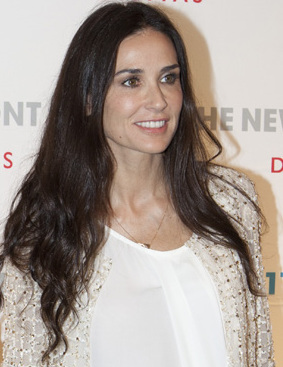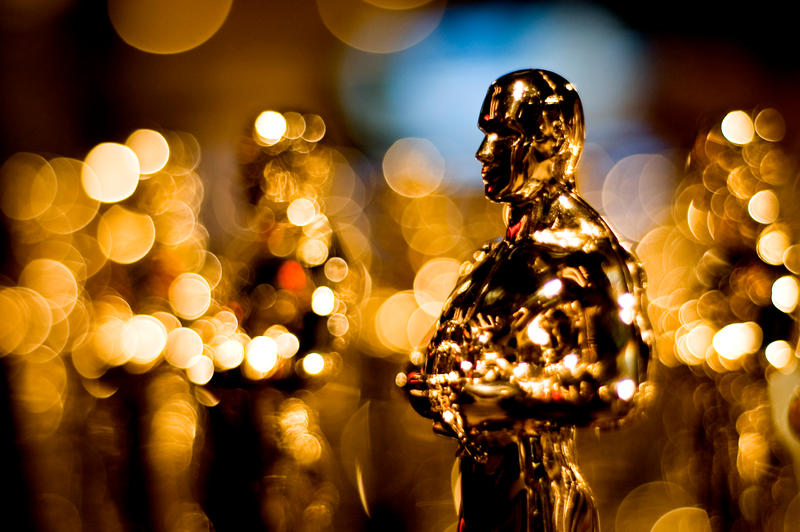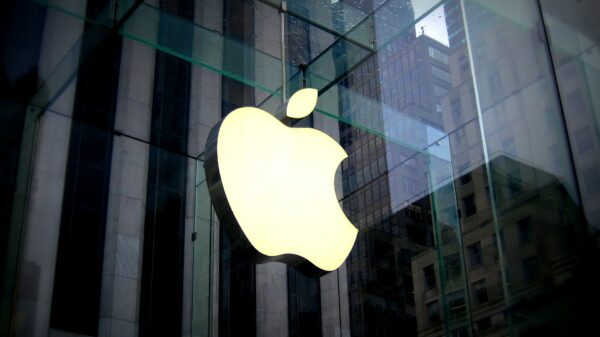Staff Writer Theo Grange examines the recent Oscars results, reflecting on the surprise element and long-standing trends that seem inherent to the event.
The Oscars are not known for perfection. Stretching back to 1929, the Academy’s reputation sits on the shaky shoulders of its steeped history. The tendency to depend on the past often comes back to bite – whether it’s the criticised ‘legacy Oscars’ or the #OscarsSoWhite movement, the prestige of the awards doesn’t go untarnished. Coming to 2025, embroilment and controversy re-appear once again, with a healthy mix of the good, the bad and the ugly. What was it this year then, that the Oscar’s got right (or tried to), and what went horribly wrong?
The Good: Conan
Despite the generally positive reception of Jimmy Kimmel’s hosting skills put to test for four separate years, it was time for someone new. While the talk show host certainly did his job, the word “adequate” sums up his performance – maybe aside from the spicy shot at yet-to-be president Donald Trump. The academy certainly wanted a safe pair of hands, but this didn’t mean they weren’t looking for a good show. Dipping into the same pool, it seems the goofy red-headed, crowd-pleasing Irish-American bit the hook; and what a good catch it was.
Conan O’Brian, famed for ‘Late Night’ and ‘The Tonight Show’, came as no shock, continuing the lineage of talk show hosts appearing at the event. It shouldn’t have surprised O’Brien either as the nine-time MTV Movie Awards and two-time Emmy Awards presenter. Even with his heaps of experience, however, he was open in admitting his fear of stepping into the hottest seat of the annual awards. Taking part in a legacy of famed comedians, actors and celebrities such as the iconic Billy Crystal, as well as coming into the post-Ricky-Gervais-2020-Golden-Globes world, the spotlight was definitely as big as it could get.

Luckily, O’Brien shines in such environment. A swathe of self-deprecating humour, actually funny jokes at a range of attendees (his scope notably set on Karla Sofía Gascón) and entertaining segments all managed to uphold the event’s grandeur. Whether it was ironic musical numbers, witty multilingual translation segments or simply Conan being Conan, the veteran comedian glued the show together.
While the directors and producers behind the telecast may have fumbled here and there, it seems that we can pleasantly expect to see Conan as the face of the Oscars next year.
The Bad: Adrien Brody and AI
On his own merit, Adrien Brody deserved to take his second Oscar. His performance in ‘The Brutalist’ stands as a testament to both his breadth and depth as an actor, retaining strong screen presence for the immense 3,5-hour run time. His stage behaviour, however, has caused a big hit to his reputation after he broke the record for the longest acceptance speech at 5 minutes and 40 seconds (unlike the film, without an intermission). With an industry expert calling him a “big loser“, it is clear that the rambling and self-indulgent nature of the monologue, regardless of its content, has damaged his image. Perhaps we were just all annoyed that he thought he needed even more camera time.

Lets also not forget what left Brody’s mouth to grace our screens that evening. Despite stating that this was not his “first rodeo“, Brody was caught spitting out a piece of gum and tossing it in the direction of his partner Georgina Chapman. All this adds up to saying that it was certainly not his finest moment.
While fellow nominee Ralph Fiennes was a front runner for his moving performance in ‘Conclave’, his run was spoiled due to the ignorance of certain voters. Two academy members admitted that they didn’t vote for Fiennes, assuming that he had won previously for his role in ‘Schindler’s List’ in 1994. This comes as a glaring hypocrisy, considering Brody’s 2003 success with ‘The Pianist’. While not regarded as a snub, in another world of well-informed voters, we would most likely see Fiennes with an award that many are surprised isn’t on his shelf.
To what extent however, can Brody claim complete ownership of his performance? The voice recordings of both Brody and cast-member Felicity Jones are not entirely their own, due to the work of editor Dávid Janscó. The editing team used AI speech tool Respeecher to make the Hungarian accent more ‘accurate’, after ADR (dialogue re-recording) didn’t cut it. As a native Hungarian speaker, Janscó stated that despite the two actors doing a “fabulous job”, the production team “wanted to perfect it so that not even locals will spot any difference”. He remarked that these changes could be done manually in ProTools, but due to the amount of dialogue, using AI made the process more efficient. Read the full interview here.

AI software perfected the Hungarian accent of ‘Rogue One’ star Felicity Jones. Dick Thomas Johnson, CC BY 2.0 https://creativecommons.org/licenses/by/2.0, via Wikimedia Commons.
Hence, the already heated debate about AI’s usage returns. One may think: while these tweaks are possible without artificial intelligence, why not use AI to make them quicker? To what extent are we losing the authenticity of the film conveyed in, for instance, an actor’s performance, by implementing AI? There is another shining example from this awards season: in ‘Emilia Perez’, Respeecher was deployed to expand the vocal range of Gascón’s voice for certain musical numbers. Looking to the future, what legislation and guidelines will come through before the use of AI in filmmaking goes too far? With more and more productions utilising AI tools, we’ll have to wait and see where the line is drawn.
The Ugly: Mikey Maddison and ‘Anora‘
Commonly debated, the seminal ‘legacy Oscars’ draw attention to a continuing habit of looking back, which reared its head in 2023 with Jamie Lee Curtis’ Best Supporting Actress win. She stands next to Al Pacino (‘Scent of a Woman’, 1993), Kate Winslet (‘The Reader’ 2009) and, some would say, Leonardo DiCaprio (‘The Revenant’, 2015) in the roster of awards that seem to credit these performers’ entire careers. Its voters have a habit of giving brownie points to those who have done their time and seem to be long-deserving of some recognition.

Henceforth, in this awards season, no one would’ve batted an eye if ‘The Substance’ lead actress Demi Moore took to the stage. It almost seemed fitting for Moore to win, in light of her part boldly reflecting female stars’ careers and contrasting with her historically type-casted roles. On top of that, Moore’s unabashed and audacious performance as Elisabeth Sparkle stands as a testament to the actress’s limitless capability as an entertainer and an artist.
This scenario did not come true, as young star Mikey Maddison rose to claim the Oscar for Best Actress. Starring as the titular lead Anora in Sean Baker’s biggest project to date, it certainly isn’t an underserved win by any means. Maddison was equally potent on-screen and passed with flying colours when put to the test in a mix of emotionally varied scenes. But, coming back to the surprise element, many Oscar watchers felt shocked that the Academy went for the new blood. Still, it was Moore who felt the shock the most, commenting that she was “heartbroken” after the loss.

Is this indicative of a new trend for the Oscars? Rather than a big-budget Hollywood flick like ‘Dune: Part Two’ or ‘Wicked’, or starring notable actors such as ‘Conclave’, Sean Baker’s film was in the lower bracket when it comes to budgets and its cast had been mostly unknown. This indie wave has made its way into other categories as well, with the Latvian animation ‘Flow’ winning over the works of big studios Disney and Aardman. Maybe the Academy is moving towards voting based purely on quality, a positive sign that the Oscars system may become one of meritocracy.
On the other hand, let’s not forget the extortionate amount that ‘Anora’ spent on its campaign, using branded thongs as a clearly effective bribing tool. There are more components that make its win not-so-pretty. Critcism has been levied towards Sean Baker for trying to produce the film without union involvement. Despite shooting in New York over a $3 million budget, the maximum expected cost of a non-union production, Baker attempted to avoid costs such as covering health insurance. This put employees at risk of being unable to claim it on subsequent productions. Furthermore, the lack of an intimacy coordinator fell under scrutiny, leading to Maddison herself having to make a public statement defending Baker. Taken together, these considerations make ‘Anora’’s presumably clean win slightly less glamorous.
The End
Overall, this year’s Oscars is a return to form. Still, there are always some points of contention, question marks and the inevitable glaring issues. Whether it’s the credibility of the awards themselves or the controversies that surround them, it seems impossible to have a perfect show from front to back. As the telecast comes to a close, there’s always one thing viewers have in mind: what’s in store for next year?















